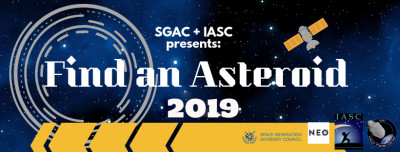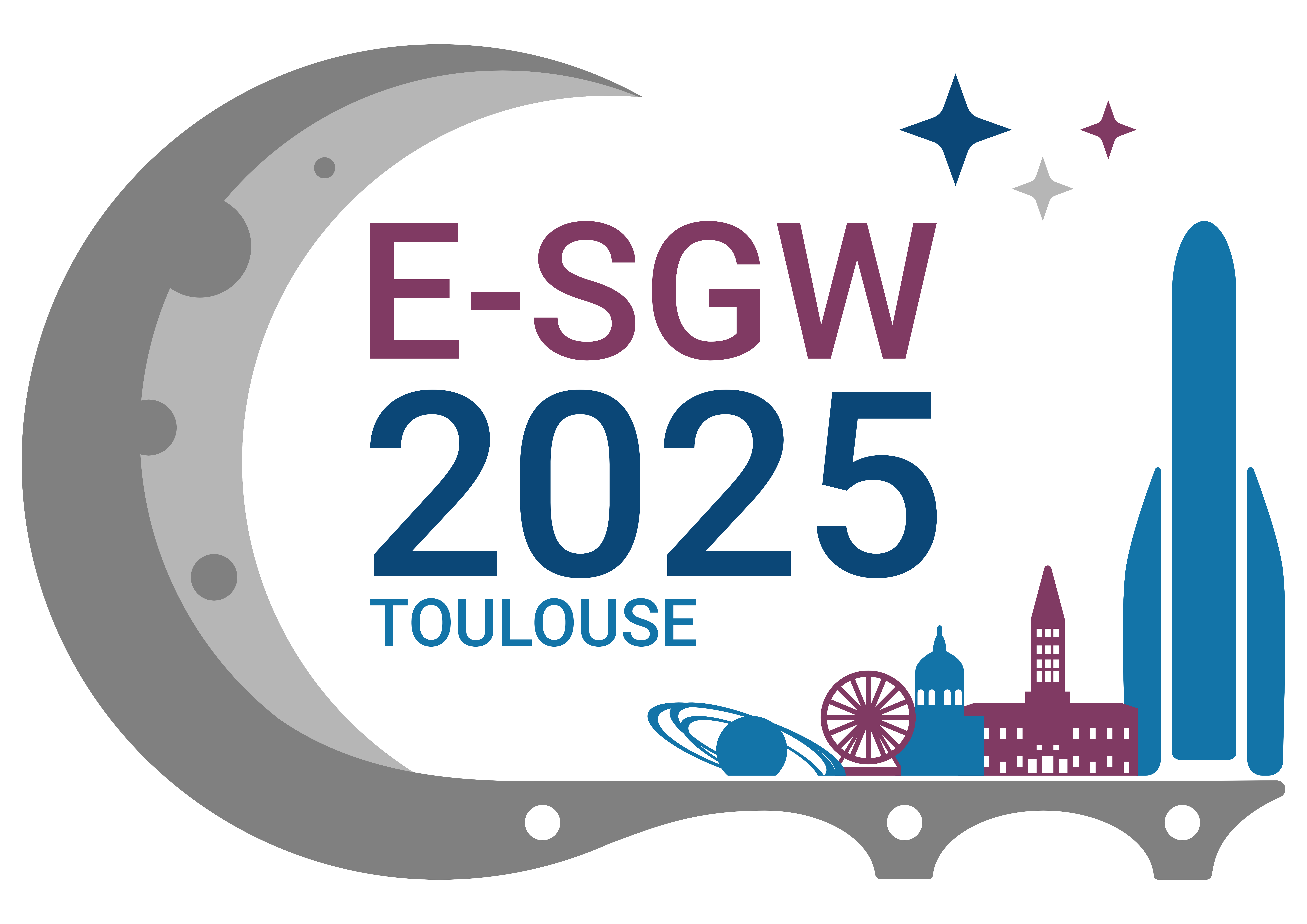
Find an Asteroid 2019
SGAC Asteroid Search Campaign
Discover and name an asteroid!
Form a team with 3 – 5 SGAC members and apply by November 25, 2019.
The search campaign will take place 27 November – 17 December, 2019.
Scroll down to find out all details and how your team can participate.
Space Generation Advisory Council (SGAC) and International Astronomical Search Collaboration (IASC) are sponsoring a special asteroid search campaign during the month of November and December, which will run for 3 weeks from November 27th to December 17th, 2019.
Your team will have a chance to be selected amongst 30 schools and teams worldwide to participate in the Find an Asteroid 2019 search campaign.
Background
Asteroids are rocky, airless worlds that orbit our Sun, but are too small to be called planets. Tens of thousands cluster in the main asteroid belt, a vast doughnut-shaped ring between the orbits of Mars and Jupiter. Asteroids within a close proximity to Earth are called Near-Earth Objects, or NEOs.
Asteroids can be classified based on their size, composition, colour, position in the solar system and even how they were formed! They can range in size from Vesta—the largest at about 329 miles (530 kilometers) in diameter – to bodies that are less than 33 feet (10 meters) across.
(Fun fact: The total mass of all the asteroids combined is less than that of our Earth’s Moon.)
It important that we learn more about asteroids, through further research and documentation since asteroids can tell us about the origins of our solar system and even the origins of life itself. Asteroids are discovered with the help of (optical) telescopes by amateur astronomers, using specialized software even you can make such a discovery!
So to continue this initiative, Space Generation Advisory Council (SGAC) together with International Astronomical Search Collaboration (IASC. pronounced ”Isaac”) is giving your team the opportunity to make your own discoveries by participating in the Find an Asteroid Campaign 2019!
Search Campaign
Teams receive telescopic images, only hours old and taken along the ecliptic. Using the software Astrometrica, they can accurately measure the time and position of asteroids moving in the background. These measurements can then be recorded in a report to be sent to IASC. Weather permitting, each team receives 25 unique sets of images during the campaign. Team members can download each image set and search them for asteroids just hours after they have been taken along the celestial ecliptic at the University of Hawaii (Pan-STARRS). Teams use the Astrometrica software, with IASC teachers who have participated in asteroid search campaigns available through the website to answer questions by email and help with learning how to properly use the software. Each year 1000 teams participate from more than 80 countries. Since starting in October 2006, over 1500 asteroids have been discovered, of which 52 have been numbered by the International Astronomical Union (Paris). Numbered asteroids are recorded in the world’s official minor planet catalog and can even be named by their student discoverers.
How to Apply and Requirements
Form a team with a minimum of 3 and maximum of 5 persons. (Each member of your team must be an SGAC member so if you aren’t already registered, please sign up here on our website.)
After assembling your team, you are required to submit your contact details and write a short description explaining your reasons for participating. Note that it is at no cost to the students or schools who apply.
Applications are now closed
Key Dates & Deadlines:
Application deadline: 25 November 2019
Confirmation of acceptance : Selected teams will be notified by 26 November 2019.
Campaign duration: 27 November 2019 – 17 December 2019
Contact:
For questions check the FAQ or contact ([email protected] or [email protected])
Follow the campaign using the hashtags:
#asteroidsgac
Keep updated through our Facebook page: https://www.facebook.com/sgacneo
and our Twitter account: https://twitter.com/NEOProjectsSGAC
Frequently Asked Questions
Important Note: Even if your school is not selected to participate in this special SGAC project, it may still be able to participate in any of the 20 or more other asteroid search campaigns IASC organizes throughout the year!



